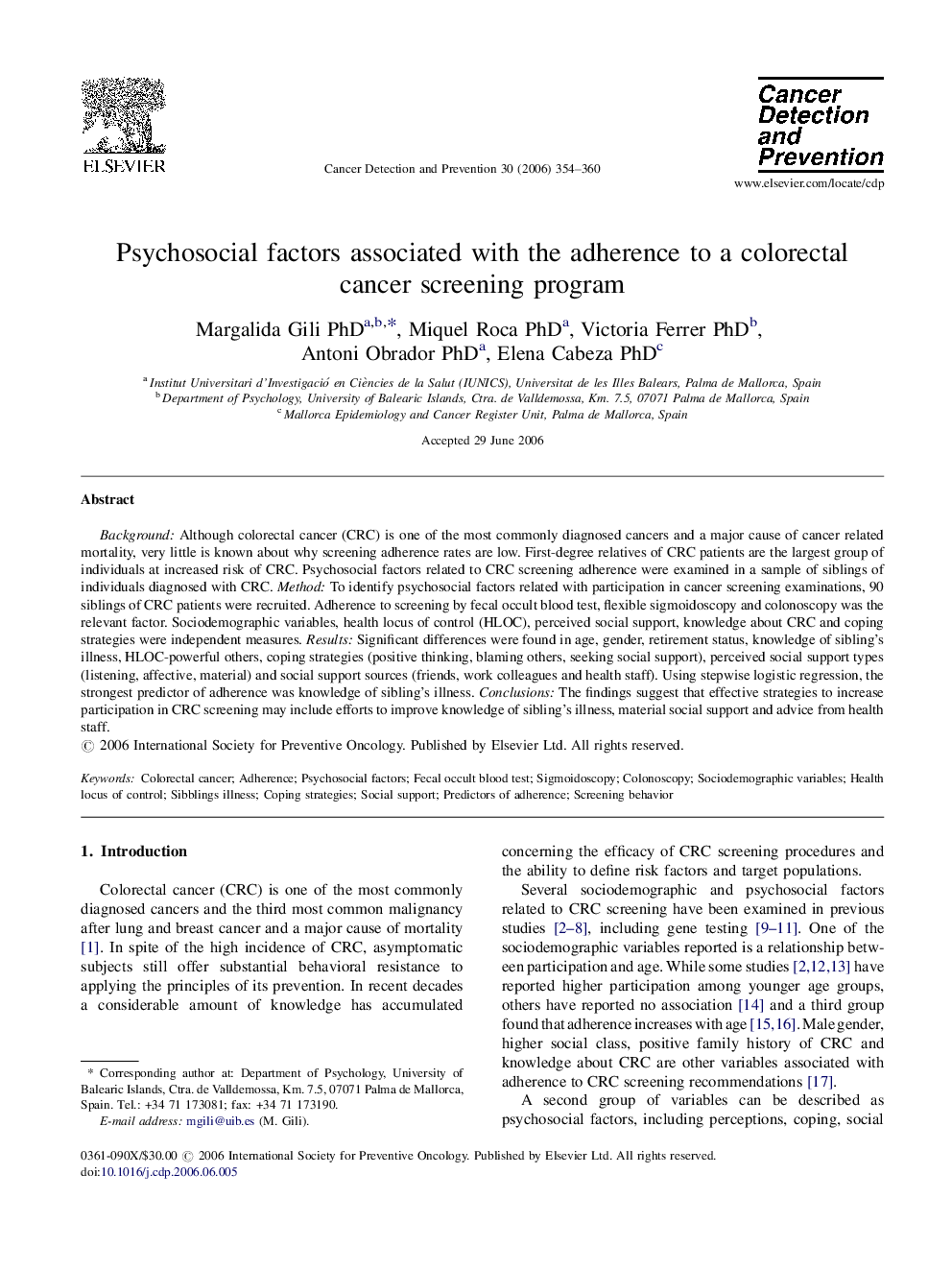| کد مقاله | کد نشریه | سال انتشار | مقاله انگلیسی | نسخه تمام متن |
|---|---|---|---|---|
| 2108722 | 1083807 | 2006 | 7 صفحه PDF | دانلود رایگان |

Background: Although colorectal cancer (CRC) is one of the most commonly diagnosed cancers and a major cause of cancer related mortality, very little is known about why screening adherence rates are low. First-degree relatives of CRC patients are the largest group of individuals at increased risk of CRC. Psychosocial factors related to CRC screening adherence were examined in a sample of siblings of individuals diagnosed with CRC. Method: To identify psychosocial factors related with participation in cancer screening examinations, 90 siblings of CRC patients were recruited. Adherence to screening by fecal occult blood test, flexible sigmoidoscopy and colonoscopy was the relevant factor. Sociodemographic variables, health locus of control (HLOC), perceived social support, knowledge about CRC and coping strategies were independent measures. Results: Significant differences were found in age, gender, retirement status, knowledge of sibling's illness, HLOC-powerful others, coping strategies (positive thinking, blaming others, seeking social support), perceived social support types (listening, affective, material) and social support sources (friends, work colleagues and health staff). Using stepwise logistic regression, the strongest predictor of adherence was knowledge of sibling's illness. Conclusions: The findings suggest that effective strategies to increase participation in CRC screening may include efforts to improve knowledge of sibling's illness, material social support and advice from health staff.
Journal: Cancer Detection and Prevention - Volume 30, Issue 4, 2006, Pages 354–360